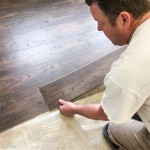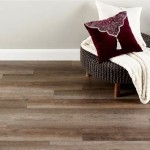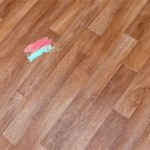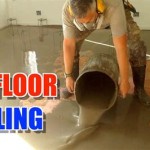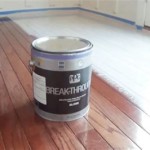Essential Aspects of Basement Laundry Room Flooring: What To Consider
The basement laundry room is an often-overlooked space, but it's important to choose the right flooring for this humid and potentially moisture-prone area. Here are some essential factors to consider when selecting basement laundry room flooring:
Durability and Water Resistance
The basement laundry room is prone to spills, moisture, and potential flooding. Choose a flooring material that is durable and water-resistant to withstand daily wear and tear and protect against potential water damage.
Slip Resistance
The laundry room floor can get wet and slippery, making it important to prioritize slip resistance. Consider flooring options with a textured or non-slip surface to minimize the risk of accidents.
Ease of Maintenance
Basement laundry rooms tend to accumulate dirt and moisture, so choose flooring that is easy to clean and maintain. Opt for materials that can be easily mopped, swept, or vacuumed, and avoid porous surfaces that trap dirt and moisture.
Mold and Mildew Resistance
Basement environments are often damp, which can lead to mold and mildew growth. Choose flooring materials that are mold and mildew-resistant to prevent these issues and maintain a healthy indoor environment.
Materials Considerations
Several flooring materials are suitable for basement laundry rooms, including:
- Vinyl: Vinyl flooring is durable, water-resistant, and easy to maintain. It comes in a wide range of styles and colors to complement any laundry room design.
- Porcelain or Ceramic Tile: Tile is a durable, water-resistant, and easy-to-clean option. Choose glazed tile to enhance moisture resistance and prevent staining.
- Concrete: Concrete floors are durable and easy to maintain, but they require proper sealing to prevent moisture penetration.
- Epoxy: Epoxy flooring is a durable, water-resistant, and stain-resistant option. It creates a seamless surface that is easy to clean and maintain.
Installation Considerations
The installation method is crucial for ensuring the longevity and performance of your basement laundry room flooring. Consider hiring a professional for proper installation to ensure:
- Adequate drainage and moisture protection
- Proper sealing of seams and edges
- Compliance with building codes and safety regulations
By considering these essential aspects, you can choose the right flooring for your basement laundry room that enhances its functionality, durability, and aesthetics.

Best Rubber Pvc Plastic Foam Laundry Utility Room Flooring

5 Best Types Of Laundry Room Flooring And 3 To Skip Bob Vila

Our Basement Laundry Room Makeover Making It Lovely
What S The Best Type Of Flooring To Put In A Laundry Room Quora

Best Rubber Pvc Plastic Foam Laundry Utility Room Flooring

What Is The Best Flooring For A Laundry Room Lily Ann Cabinets

What Type Of Flooring Is Best For A Laundry Room

How Do We Finish Our Basement Laundry Room Floor Hometalk

Laundry Room Flooring Does A Cork Floor Work Well Icork

Finished Basement Laundry Room Ideas Basements Plus
See Also
